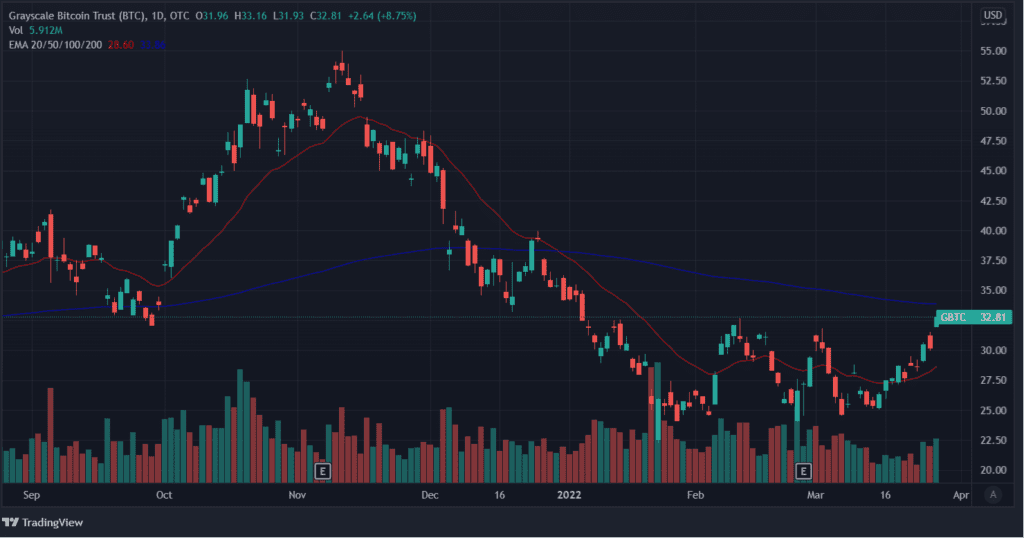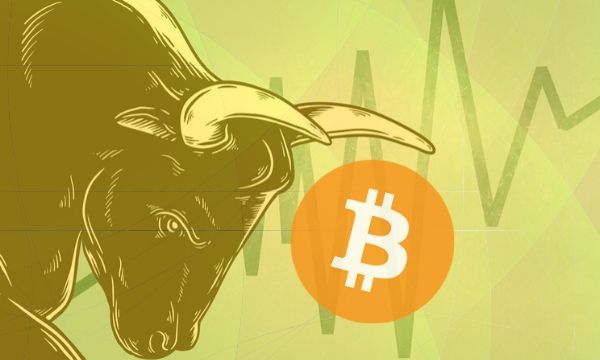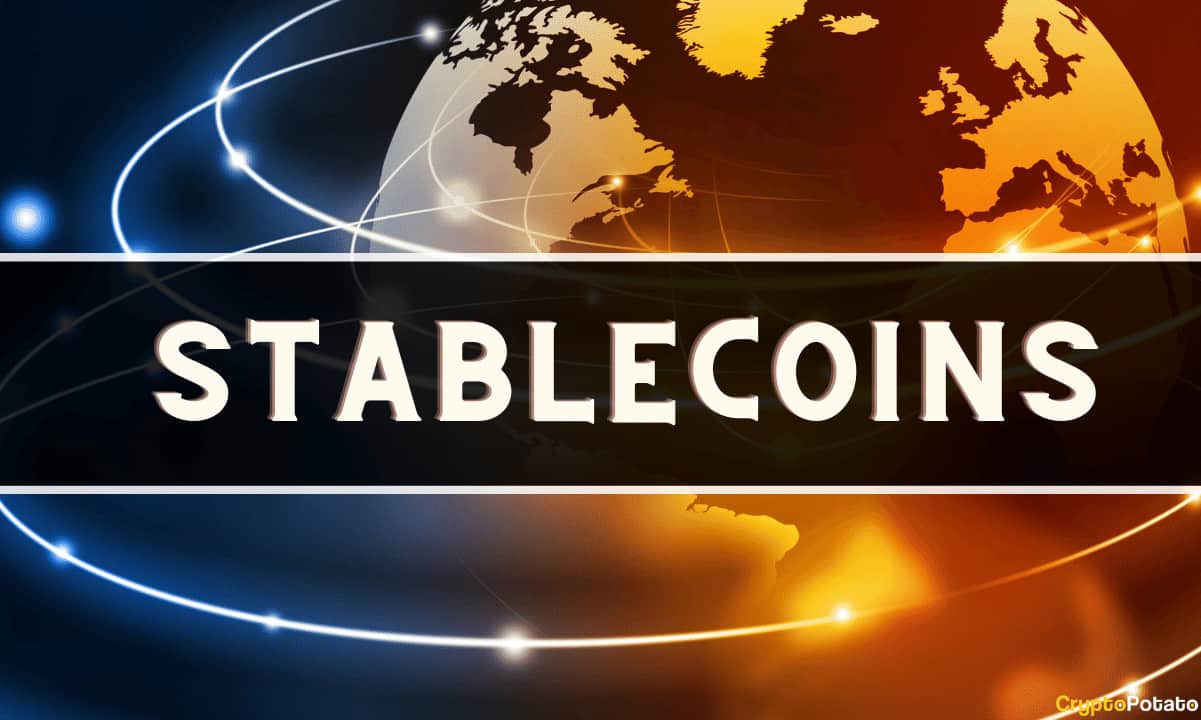Grayscale Might Sue The SEC If It Rejects Its Bitcoin ETF Application
Grayscale is not afraid of the SEC and is willing to do everything in its power to get its Bitcoin ETF application approved, even if it means suing the agency itself.
In an interview for Bloomberg, Michael Sonnenshein, CEO of Grayscale, said he was not shut to any option that would bring a Bitcoin ETF closer to reality. When asked specifically if he was willing to pursue legal action against the SEC, his response was clear: “I think all options are on the table,” he said, as he called on all investors to open more communication channels with the US regulators.
Why a Bitcoin “Spot” ETF Matters
Grayscale’s efforts to launch an spot Bitcoin ETF are not new. In 2021, the company began its journey with an application to convert its Grayscale Bitcoin Trust into a Spot Bitcoin ETF.
However, the SEC has delayed its pronouncement until today, and the company is still on hold.
This situation of uncertainty is being felt in the markets, especially considering that so far no previous Bitcoin spot ETF application has been approved by the SEC. The Grayscale Bitcoin Trust (GBTC) is the largest fund of its kind, managing assets for more than 800,000 investors.
Lately, however, the share price has been trading at a discount of more than 20% —that is, it is cheaper to get exposure to Bitcoin through the trust than through the asset itself… but it is also less lucrative to sell.

Up until now, the SEC has only approved filings for Bitcoin futures ETF. However, even though they might seem similar to the untrained eye, in reality, a Bitcoin ETF and a Bitcoin futures ETF have very different characteristics, starting with the underlying asset. The Bitcoin futures market can be more volatile than the spot market, but it is more clearly regulated.
Grayscale’s Arguments Against the SEC
Grayscale has been trying to change the SEC’s stance for some time. Back in December last year, Grayscale Chief Legal Officer Craig Salm, shared on his social media a letter addressed to the SEC arguing that its position could be against the law.
He asserted at the time that several of the SEC’s arguments did not apply to the context of applications for approval of a Bitcoin ETF and even made it impossible for applicants to discover what the conditions were under which the SEC would approve an ETF:
While the Commission may have a clear vision of what facts a national securities exchange should adduce to show a “reasonable likelihood” that a malefactor would have to trade in a particular market in order to manipulate the ETP, and simultaneously demonstrate the “unlikelihood” that trading in the ETP would be the “predominant influence” on prices in that market (…) The Commission has not explained what it has in mind. The result, intentionally or not, is that satisfaction of the Section 6(b)(5) standard that the Commission applies to spot Bitcoin Rule 19b-4 applications is a matter to be judged on a case-by-case basis in the simple discretion of the Commission and its staff.
For now, the SEC’s decision on Grayscale’s petition is expected in July. Michael Sonnenshein called on all interested parties to communicate their views to regulators while emphasizing the collaborative spirit of his agency. But if things don’t work out the easy way, Grayscale is obviously not afraid to try the hard way.








